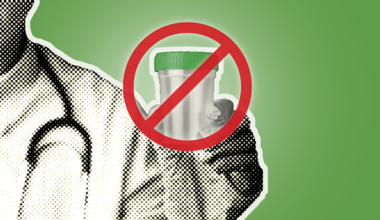
Voters and politicians are reshaping America’s marijuana laws for the better. The possession and use of cannabis is now legal for medical purposes in 38 states and legal for adult recreational use in 23 of those.
Unfortunately, antiquated and discriminatory drug testing policies often haven’t kept up with these changes.
It’s reasonable for employers to expect sobriety on the job. But requiring would-be hires and employees to undergo urine screens for past cannabis exposure are invasive and ineffective. They neither identify workers who may be under the influence nor contribute to a safe work environment.
That’s because conventional urine tests only identify the presence of non-psychoactive “metabolites” — by-products that linger in the body’s blood and urine well after a substance’s mood-altering effects have ended. Even the U.S. Department of Justice acknowledges: “A positive test result, even when confirmed, only indicates that a particular substance is present in the test subject’s body tissue. It does not indicate abuse or addiction; recency, frequency, or amount of use; or impairment.”
Carboxy THC, marijuana’s primary metabolite, is fat-soluble and can remain detectable in urine for days, weeks, or even months after a person has stopped using cannabis. It doesn’t provide any definitive information about how often an employee uses cannabis, when they last consumed it, or whether they were under the influence when they took the test.
Aside from these practical limitations, there are larger philosophical questions raised by random workplace cannabis testing — especially in jurisdictions where the possession and use of marijuana is now legal under state law.
Studies indicate that employees who consume cannabis during their off hours are little different from their peers. Their workplace performance seldom differs from their co-workers, many of whom consume alcohol, and they don’t pose any increased safety risk. According to an exhaustive review by the U.S. National Academy of Sciences, “There is no evidence to support a statistical association between cannabis use and occupational accidents or injuries.”
This begs the question: Why are we okay with policies that single marijuana users out and discriminate against them?
Fortunately, in a growing number of jurisdictions, lawmakers are doing away these outdated and discriminatory policies. The District of Columbia plus California, Connecticut, Montana, New Jersey, New York, and Rhode Island — as well as major corporations like Amazon — have amended their rules so that many employees are no longer terminated from their jobs solely because of a positive drug test for THC metabolites.
The states of Michigan, Nevada, and Washington — along with local governments in Atlanta, Baltimore, Philadelphia, and elsewhere — have also enacted laws prohibiting certain employers from taking action against new hires because of a failed drug test for marijuana.
Lawmakers in other states and localities should follow suit and amend workplace cannabis testing regulations in accordance with the plant’s rapidly changing cultural and legal status.
Those who consume alcohol legally and responsibly while away from their jobs aren’t punished by their employers unless their work performance is adversely impacted. Those who legally consume cannabis should be held to a similar standard.
A version of this op-ed was originally published by Other Words.
Additional information is available from the NORML Fact Sheet, ‘Marijuana Legalization and Impact on the Workplace.’
Related
Medical Disclaimer:
The information provided in these blog posts is intended for general informational and educational purposes only. It is not a substitute for professional medical advice, diagnosis, or treatment. Always seek the advice of your physician or other qualified healthcare provider with any questions you may have regarding a medical condition. The use of any information provided in these blog posts is solely at your own risk. The authors and the website do not recommend or endorse any specific products, treatments, or procedures mentioned. Reliance on any information in these blog posts is solely at your own discretion.






